Last updated on July 8th, 2024
Featured Image: View of the Pilar Cathedral from the Stone Bridge, Zaragoza, Spain / Photo credit: Photo by Cat Driver
Zaragoza offers incredible art, historic sights and museums
By Catherine Driver, Guest writer
Poor Zaragoza, always overlooked for its shiny neighbours, Madrid and Barcelona. But for art lovers like myself, it is a beautiful respite from the big cities where visitors can experience authentic life in Spain and take in stunning art and architecture which spans centuries from Roman times to the modern day.
In 2019, I had the opportunity to live in Zaragoza, the capital city of the region of Aragon, for a year and was taken with how such a small city could be so packed with incredible art and amazing historic sights and museums.
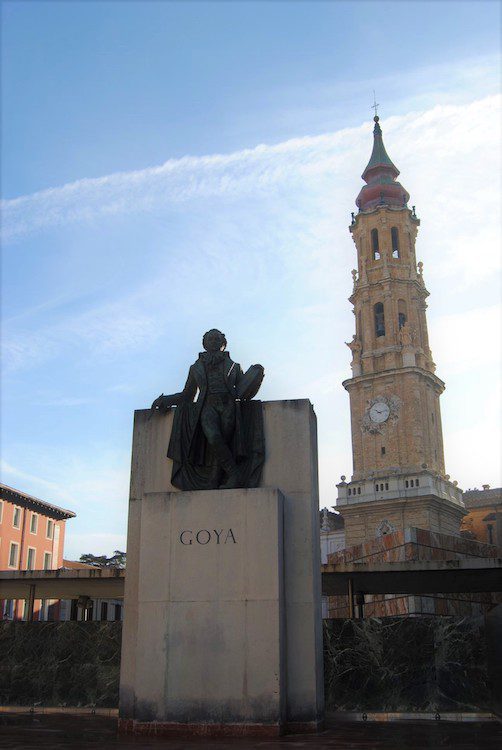
A monument to artist Goya in the Plaza del Pilar Square. Photo credit: Cat Driver
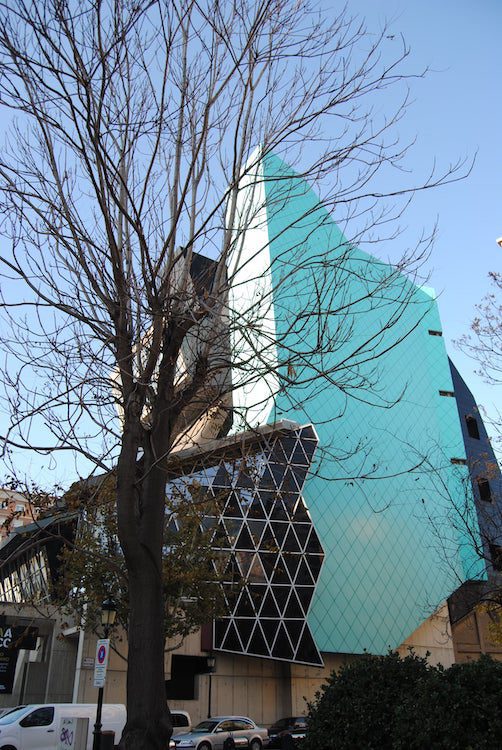
The Pablo Serrano Museum, Zaragoza, Spain. Photo credit: Cat Driver
The influence of Francisco Goya
One of the first things I notice about Zaragoza is how much Francisco Goya is referenced and represented everywhere in the city. Anyone with even a casual interest in art will know him as one of the most prolific painters and printmakers of the late 18th and early 19th centuries and a court painter to the Spanish Crown. Goya was born in the town of Fuendetodos, just outside of Zaragoza, so it is no surprise that the city so proudly and beautifully honours him.
The superb Goya Museum is dedicated, predominantly, to his captivating etchings. While his subject matter focuses on war, societal issues of the day and his own dark subconscious, which always leaves me feeling a bit down, his craftsmanship alone has me enthralled for hours. Many of Goya’s most famous works reside outside of Zaragoza, but one of his best is a little difficult to move. The spectacular Regina Martyrum can be found in situ in the choir dome of the majestic Basilica del Pilar. Find a spot to stand and look up! A quick walk through the Plaza del Pilar gets me to my favourite, the Alma Mater Museum, a wonderful place to continue a Goya tour and be immersed in fascinating artifacts of the city’s vast history.
Strolling through the Casco Antiguo
Like everywhere in Spain, Zaragoza dates back to pre-Roman times. Undoubtedly, Goya would have been inspired while walking these city streets. So, what other incredible things are there to see here?
Zaragoza takes its name from Roman times, when the city was named Caesaraugusta. A meander through the Casco Antiguo (old town) offers plenty of opportunities to marvel at the well-preserved ruins of this important era in the city’s history.
The Museo del Foro de Caesaraugusta, located in the Plaza del Pilar, gives visitors a glimpse into ancient life via the fragments of the old walls, market, sewer, government buildings, shops and temple. A short stroll from the Plaza del Pilar lies the beautiful Teatro romano de Zaragoza, a Roman amphitheatre dating back to the 1st Century, and its interesting museum. It can be seen from the street and I always love taking a few moments here at night when it’s so beautifully floodlit.
The breathtaking Aljafería Palace
When I think of the Islamic influence in Spain, Andalucia and its famous sites like the Alhambra in Granada or La Mezquita in Córdoba immediately come to mind.
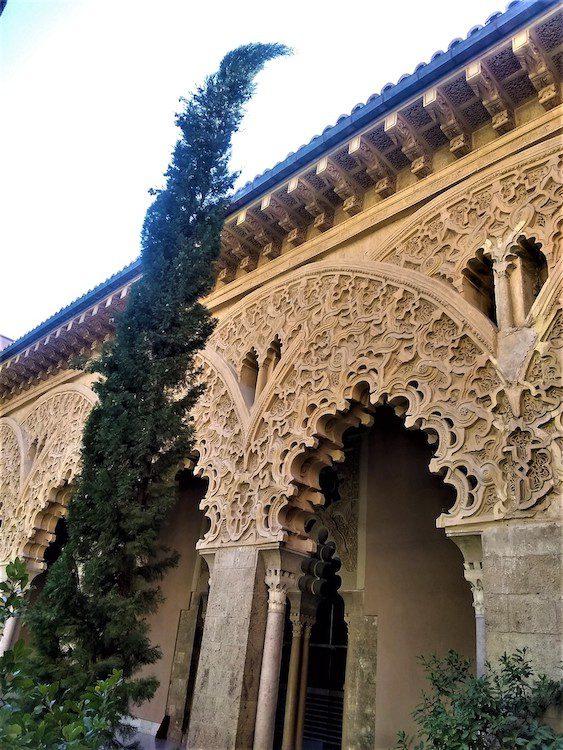
The intricate and ornate detailing that adorns the exterior of Aljaferia Palace. / Photo credit: Cat Driver
However, the Muslims also left their mark on Zaragoza and evidence of this can be found in the breathtaking Aljafería Palace. Like many Islamic sites throughout Spain, the Aljafería began as a Muslim palace, changed hands when the Catholic monarchs took over and now is the home of Aragon’s regional parliament. The Muslim influence is also evident in Aragon’s gorgeous Mudéjar architecture, collectively, a UNESCO World Heritage Site.
In Zaragoza, this style is particularly prominent on the exterior of La Seo, the Catedral del Salvador, and in the commanding towers of Iglesia de la Magdalena and Iglesia San Pablo.
A thriving art scene
It’s undeniable that a walk through Zaragoza is a journey through centuries of art history, but the city also has a thriving modern art scene. Goya is not the only Aragonese artist celebrated in Zaragoza. The IAACC Pablo Serrano and the Museo Pablo Gargallo are the places to go to enjoy wonderful works by these two local sculptors and see rotating exhibitions.
One of my favourite buildings is the Antiguo Matadero Municipal de Zaragoza, which was the old slaughterhouse. It is a great place to take in modern art exhibitions as well as public events. Zaragoza is also known for its street murals. The annual Asalto Festival celebrates urban art, but if you can’t make it to that, it’s a joy to wander the “open-air galleries” of the El Gancho neighbourhood and Las Armas.
Zaragoza is a laid-back, safe city to visit and there are opportunities everywhere to participate in local Spanish life without throngs of tourist crowds. The best part is, you’ll never have to fight or break the bank to catch a glimpse of a great work of art!
If you go…
When to go: Zaragoza is land-locked and inland making the summers very hot and the winters chilly. It is fairly dry with lots of sun all year round, but spring and fall are definitely the best.
How to get there: Zaragoza is well-connected by train and bus service and has a small airport serving destinations such as London, Bucharest, Milan and various cities in Spain. It is also a seasonal airport, adding destinations during peak times like summer or holidays. It is easy to get into the city from Estación Delicias, the main bus and train station, and the airport via taxi or public bus. Check transportation options here.
Where to stay: Accommodation for any taste and budget is easy to find as hotels, Airbnbs and hostels are all widely available. I really enjoyed my stay at the Hotel Avenida. Keep in mind, the beginning of October will be the most difficult and expensive time to find a bed as the city hosts the spectacular Fiestas del Pilar. Book well in advance if visiting the city at this time of year. Find somewhere to stay here.
Getting around: Zaragoza is small and very walkable. Most of the major sites are located in the old city centre and your feet are all you’ll need. However, the bus service is extensive and reliable for exploring different neighbourhoods. There is one tram line which is useful for a visit to the delightful Parque Grande Jose Antonio Labordeta or to cross the Ebro River and visit the park and aquarium at the former Expo 2008 site.
Where to eat and drink: Zaragoza has plenty of wonderful bars and restaurants to grab a bite to eat. I love to have a coffee and piece of cake at Doña Hipólita, La Bendita or Café Botánico, all in the town centre. For more substance and less sugar, some favourites are Bar Dumbo, Mott & More, La Clandestina Cafe and Tragantua. For bar hopping and enjoying the lively tapas scene, the streets of El Tubo are the best place to be. And upscale food court, Puerta Cinegia, offers a variety of Spanish favourites and is another energetic place to mix with the locals.
Nightlife: There is plenty to do in Zaragoza once the sun goes down. There is a vibrant local music scene and cool venues to take in live performances. I always enjoy evenings out at Las Armas, The Rock and Blues Café , El Corazon Verde and La Campana Underground. Even if you don’t speak Spanish well, it is a fun experience to take in a theatre show at the beautiful Teatro Principal. Check for things to do here.

Catherine Driver is a travel writer and city tour guide from Vancouver, Canada who moved to Spain at age 44 to teach English.
Christine has also lived in London, England and travelled throughout Europe and parts of the Middle East. Her greatest travel accomplishment has been walking the Camino Frances route of the Camino de Santiago and her “I still can’t believe I went there” trip was to Iran.
You can follow more of Catherine’s travels on Medium @cattravelwriting.
We love Spain
Solo Travel Survey About Spain: Canadian Women, Take Our Survey by December 20, 2024
Canadians women are invited to take our solo travel survey on Spain to share perspectives about past and planned travel by December 20, 2024.
Where to Stay in Barcelona, Spain: Recommendations From Solo Women
Women share their recommendations on where to stay in Barcelona, Spain, including hotels, hostels and affordable accommodations.
Transforming an Abandoned Quarry Into a Vineyard: A Story of Sustainability in Mallorca
On the wine-producing island of Mallorca, Spain, entrepreneur Virginia Pones is bringing an abandoned quarry back to life as a winery, reviving her husband’s family business.

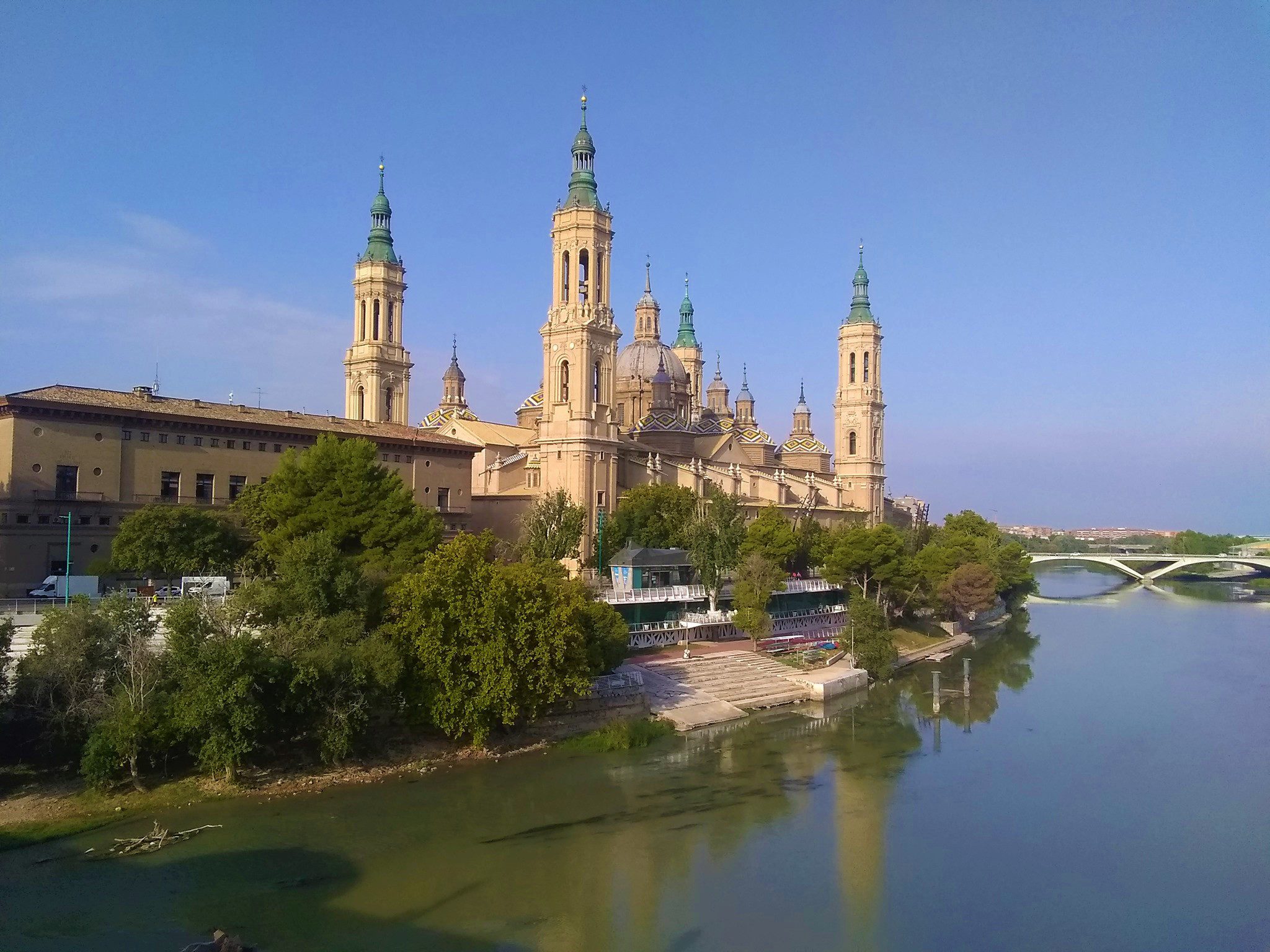

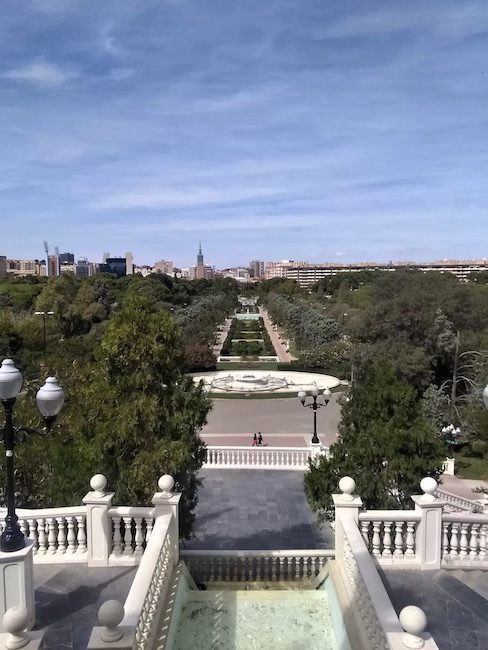
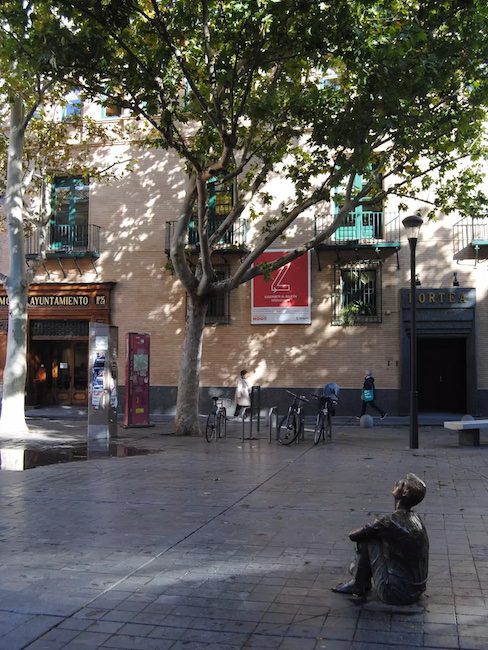
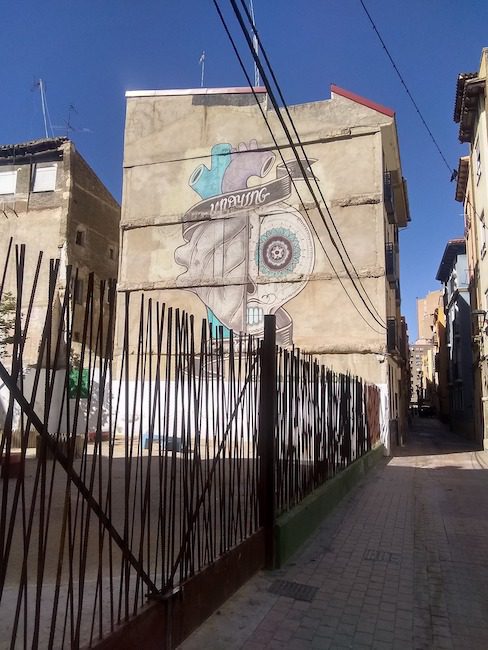


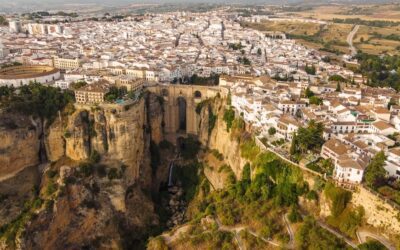
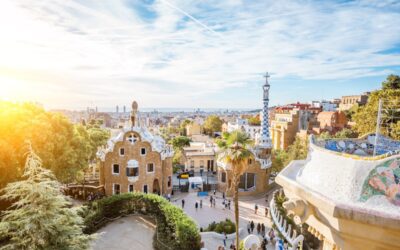

0 Comments
We always strive to use real photos from our own adventures, provided by the guest writer or from our personal travels. However, in some cases, due to photo quality, we must use stock photography. If you have any questions about the photography please let us know.
Disclaimer: We are so happy that you are checking out this page right now! We only recommend things that are suggested by our community, or through our own experience, that we believe will be helpful and practical for you. Some of our pages contain links, which means we’re part of an affiliate program for the product being mentioned. Should you decide to purchase a product using a link from on our site, JourneyWoman may earn a small commission from the retailer, which helps us maintain our beautiful website. JourneyWoman is an Amazon Associate and earns from qualifying purchases. Thank you!
We want to hear what you think about this article, and we welcome any updates or changes to improve it. You can comment below, or send an email to us at [email protected].